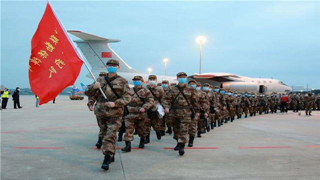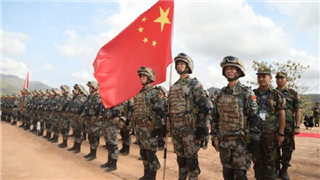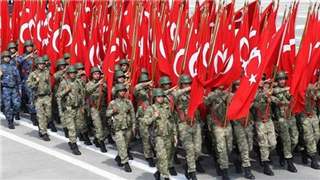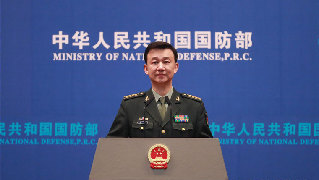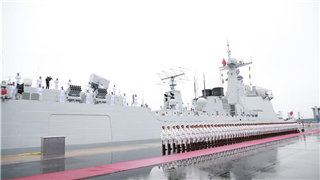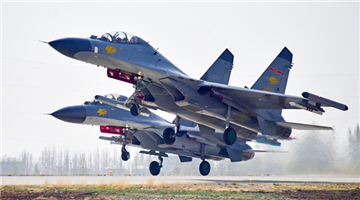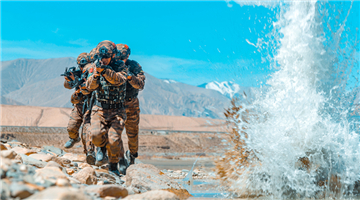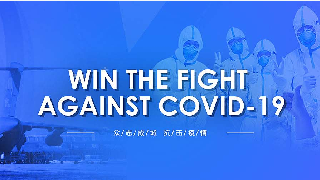Africa is no stranger to infectious diseases. But, with most countries occupied with the novel coronavirus outbreak on domestic soil, African countries have not been the focus of attention. However, it does not mean that the continent is free of danger.
CGTN Dialogue held a special program with the South African Broadcasting Corporation (SABC), inviting public health experts from South Africa and China to discuss the two countries' experience in combating COVID-19 and the importance of international cooperation in managing a global pandemic.
Dr. Yogan Pillay, deputy director of the South African National Department of Health, said that his country is in the process of ramping up testing. They have sent community workers into society to test coronavirus cases. 120,000 tests have been conducted so far and the government is looking to test more people for the disease, as well as preparing for a potential peak at September.
International cooperation is indispensable for managing the outbreak on the continent. As Dr. Pillay said, cooperation with China has proven effective. His country is currently in its fourth week of lockdown, with one more to go. They have seen that quarantine is one of the most important directives that China has employed to counter the virus. South Africa has benefited from China's experience.
One contentious issue is the shortage of medical equipment. China has donated Personal Protective Equipment (PPE) to South Africa. But as Dr. Pillay said, Africa is still on course towards its peak in infections. South Africa is expecting to reach its peak sometime in late August and early September. The country and the region needs masks, ventilators and other medical resources to prepare for treating patients on a bigger scale. They have been in conversation with the city of Shanghai about learning how to provide treatment to patients.
Dr. Gao Fu, director of the Chinese Center for Disease Control and Prevention, said that the Chinese CDC has supported African CDCs throughout the pandemic. Governmental organizations have been sharing information about the virus, and senior advisors have been working together to keep each other updated and given out advice on how to manage the outbreak. Dr. Gao stated that, maybe by September, China might have developed a vaccine that could be used in emergencies. And early next year, China might have a vaccine for healthy people.
International health organizations like the World Health Organization (WHO) have also been invaluable in the region's fight against virus outbreaks. Africa experienced a deadly Ebola outbreak between 2014 and 2016. Due to the lack of medical infrastructure in the region and the general poor economic condition, the outbreak was managed only through a coalition of African countries, nations from other continents and international organizations.
Dr. Pillay said that South Africa is participating in WHO's Solidarity Research Program, a program launched by the WHO to figure out a medical solution to COVID-19. Multi-country studies like this are important to figure out what has worked and what hasn't. Dr. Gao said that he has spoken to Robert Redfield, the director of U.S. CDC to share information on the coronavirus. "All the information must be science-based," Dr. Gao claimed.
Attacks on international organizations and cooperation does not serve anyone's interests in this pandemic. The "infodemic" as described by Dr. Gao is composed of rumors and false information that breeds and infects on its own. WHO is an important partner in managing a global pandemic. Dr. Pillay believed that it is imperative to strengthen the WHO's capability. For him, it is even more crucial to make sure that the WHO's regional office in Africa is up to the job in managing this disease as well as future epidemics and pandemics.
Reflecting on the previous Ebola outbreak and the current pandemic, "the world is a very small place," Dr. Pillay said. "These viruses can travel very far and very fast." Acting alone without international assistance and cooperation wouldn't be a sound strategy to ensure the safety of the general public.
"Dialogue" is a prime time English-language daily talk show on CGTN. The 30-minute program covers a wide range of domestic and international topics, providing a balanced and critical perspective on current affairs and analysis within the framework of cross-cultural and multi-disciplinary comparisons.
